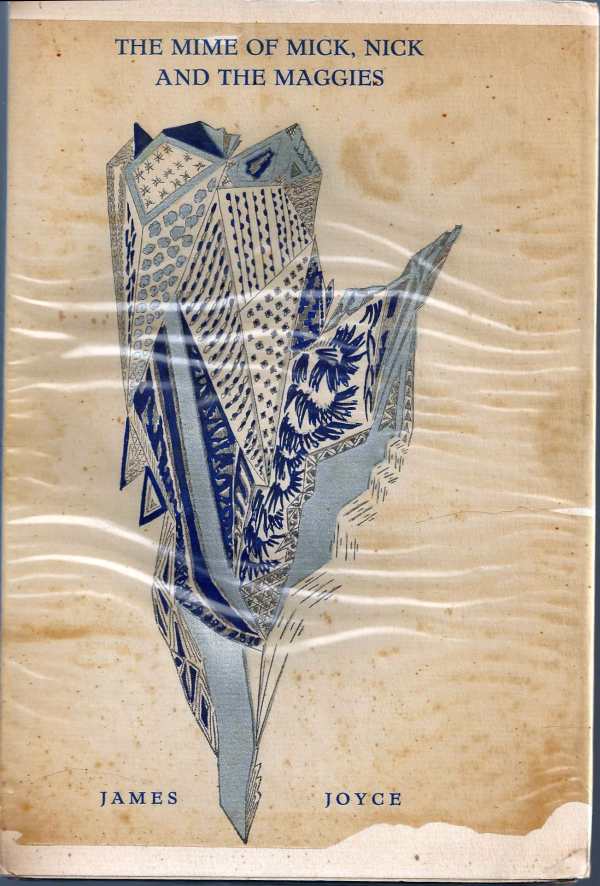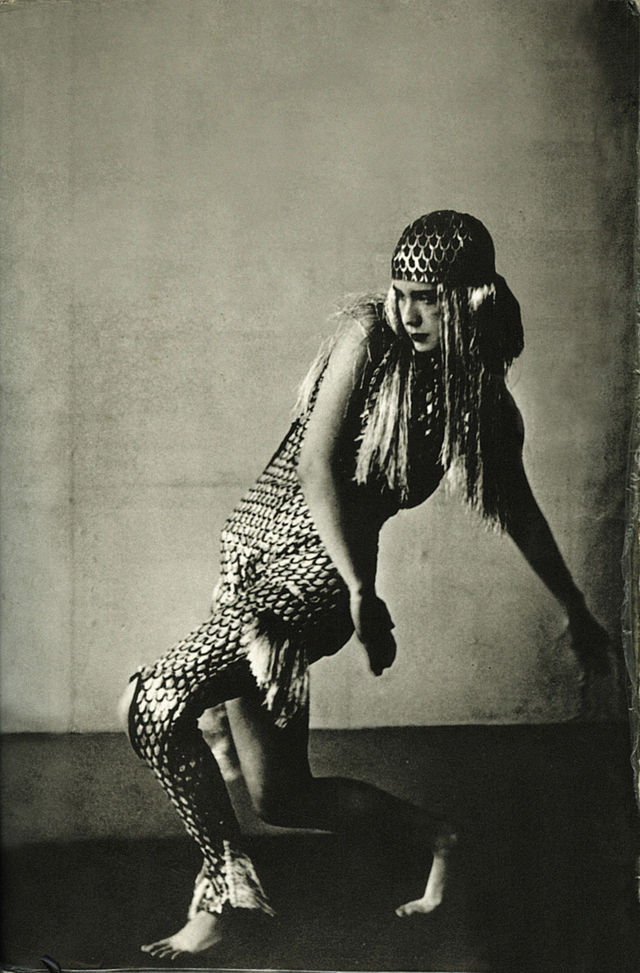 “The Mime of Mick, Nick and the Maggies” by James Joyce. The Hague, Holland: Servire Press / New York: Gotham Book Mart, 1934.
“The Mime of Mick, Nick and the Maggies” by James Joyce. The Hague, Holland: Servire Press / New York: Gotham Book Mart, 1934.
James Joyce was an Irish novelist and poet recognized for his novels “Ulysses,” “Finnegans Wake,” “A Portrait of the Artist as a Young Man” and his short story collection “Dubliners.” “Ulysses,” considered to be one of the most important works of modernist literature, is a long, complex novel. Joyce was utterly exhausted when he finished writing it in 1921. After taking a couple of years off, he began writing a very experimental work entitled “Work In Progress.” Eventually, Joyce began serially publishing “Work In Progress” in a literary magazine called Transition. Over the next 17 years, “Work In Progress” grew in length and complexity but the critical reception of it was largely negative; it was criticized for its lexical impossibility and its imperceptible plot. Eventually, the work was published in book form by Viking Press in 1939 under the title “Finnegans Wake.”

During the 1930s Joyce’s daughter Lucia, a dancer who had been a student of Isadora Duncan, began suffering from mental illness. Joyce wanted desperately to find her some relief and a new artistic outlet to replace dance since she had been institutionalized. He offered her the opportunity to illustrate a fragment of “Finnegans Wake” called “The Mime of Mick, Nick and the Maggies.” With a limited printing of 1000 copies, “The Mime” was published on Old Antique Dutch Paper and features a metallic and color cover, initial capital and tail-piece design by Lucia Joyce.
“Finnegans Wake” is not tackled by most of the reading public but is still admired by scholars for its linguistic inventiveness. The work is enjoyed most by those who do not take it too seriously, by those who see its inherent playfulness and laugh-out-loud wit. Readers also should not get lost in understanding everything about the “Wake”; Joyce himself advised readers to find what they know in the work:
“You are not Irish and the meaning of some passages will perhaps escape you. But you are Catholic, so you will recognize this and that allusion. You don’t play cricket; this word may mean nothing to you. But you are a musician, so you will feel at ease with this passage. When my friends come to Paris, it is not the philosophical subtleties of the book that amuse them, but my recollection of O’Connell’s top hat.”
Written by Lisa Newman, A version of this column was published in The Clarion-Ledger’s Sunday Mississippi Books page.


Comments are closed.